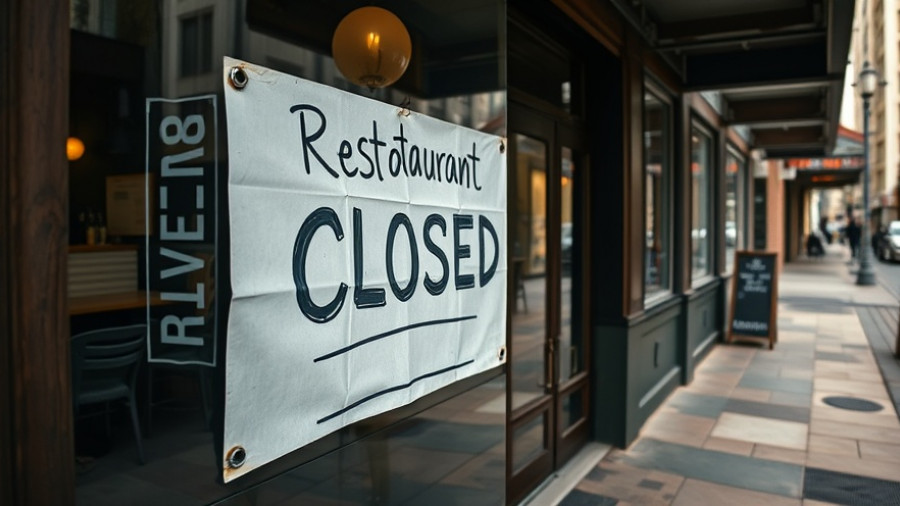
A Heartfelt Farewell: The End of an Era for Flying Fish
In a poignant turn of events, Downtown Memphis bids adieu to Flying Fish, a cherished seafood restaurant that had graced the streets for almost two decades. On October 27, 2025, the restaurant officially announced its closure after 18 years of serving the community, leaving many loyal patrons reminiscing about the memorable meals and vibrant atmosphere.
Why Closure Was Inevitable: Economic Pressures and Social Unrest
The decision to close, as stated on their website, was influenced largely by persistent challenges faced over the past several years. Owner Shannon Wynne cited ongoing civil unrest and its adverse effect on downtown sales. This situation reflects a broader concern for many businesses in urban areas, particularly those whose clientele may have been deterred by an unstable environment. As Wynne expressed, "We have struggled to keep our doors open... our hope is that downtown Memphis can one day soon again be the vibrant beacon of culture, commerce, and creativity it has been for centuries." This sentiment underscores a vital truth: the health of local businesses is intricately tied to the community’s well-being.
The Cultural Impact of Flying Fish on Memphis
Flying Fish was more than just a restaurant; it was a hub for both residents and visitors looking for a taste of Memphis. Known for its casual dining experience and delicious seafood, it became a go-to spot located conveniently near notable landmarks like the Peabody Hotel. Reflecting on its legacy, many Memphians recall celebrating milestones in its cheerful ambiance or simply enjoying a feast with family and friends. In a vibrant city that thrives on connection and community spirit, its closure leaves a notable gap.
What Lies Ahead for Downtown Memphis?
While Flying Fish's departure is a loss, it also prompts reflection on downtown Memphis's future. What can local stakeholders do to revitalize the area? The urgency to sustain downtown’s vibrancy cannot be overstated. Filling the gaps left by closures like Flying Fish requires innovative thinking and active community engagement. Real estate developments, community events, and safety measures could play pivotal roles in attracting customers back to the heart of the city.
Lessons From Closure: The Imperative for Community Support
The closure serves as an important reminder about the need for collective community support. As consumers, prioritizing local businesses, especially in challenging times, can help foster a thriving economy. Whether it’s dining in a new place, promoting events, or collaborating with local entrepreneurs, every effort counts. In this era of uncertainty, it is essential to back those who contribute to the local culture—like Flying Fish did for so many years.
The Ripple Effect: Impacts on Health and Wellness Trends
The closures of local dining options like Flying Fish echo the recent shifts in health and wellness preferences. Dining out isn’t just about food; it’s about socializing, sharing experiences, and building community connections—all vital for emotional and mental health. As local restaurateurs like Wynne expressed their struggles, it’s crucial for residents to consider the vested interests in their community—supporting local eateries and businesses contributes to overall well-being.
As Flying Fish closes its doors, it is impossible to overlook what it represented for many. The vitality of community spaces remains a foremost concern as Memphis seeks to regain its footing. For homeowners and health-conscious individuals in the Mid-South, keeping an eye on local resources and fostering supportive habits can encourage a healthier, happier community.
 Add Row
Add Row  Add
Add 



Write A Comment